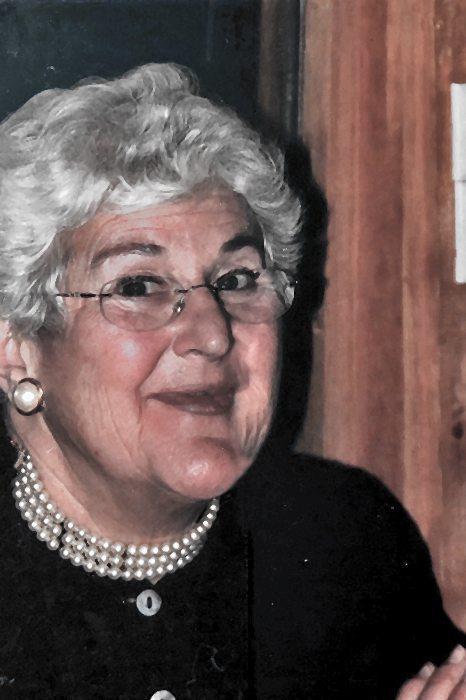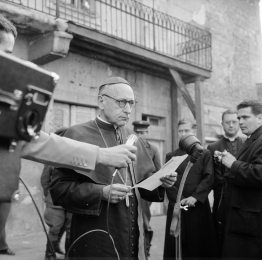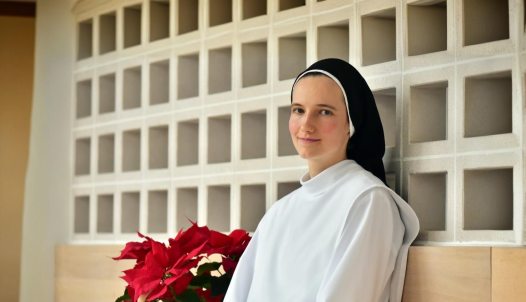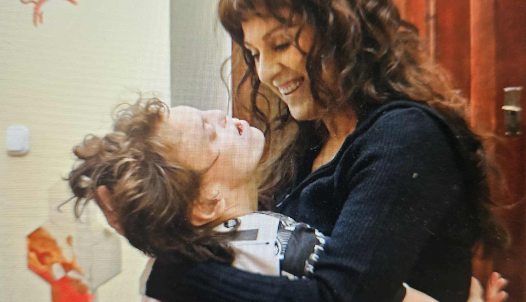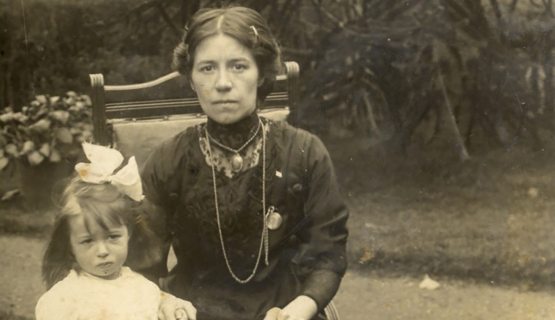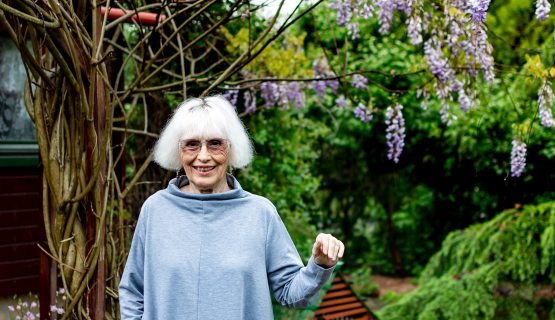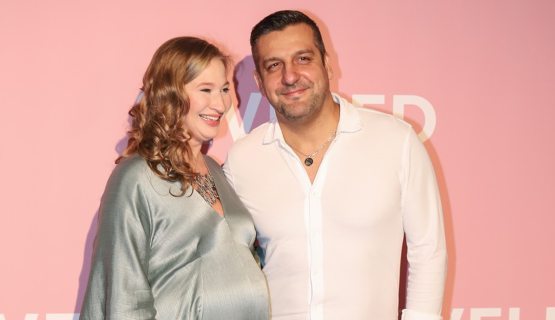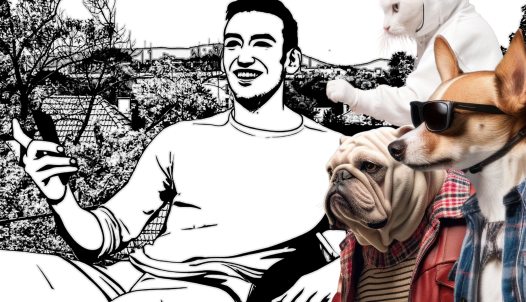This is how the girl in the red coat remembers the revolution: 'We breathed together'
She did not even suspect that she would become a messenger of freedom when she put on her red coat and headed to the National Museum on 23 October 1956. She had no idea that she was risking her life when she read out the 14-point demand of the students twice at the building of the Radio, igniting the spark of revolution in Budapest. Today she lives in Nice, but every October she visits her home country to tell the story of '56. We talked to the legendary red-coat girl Edina Koszmovszky.
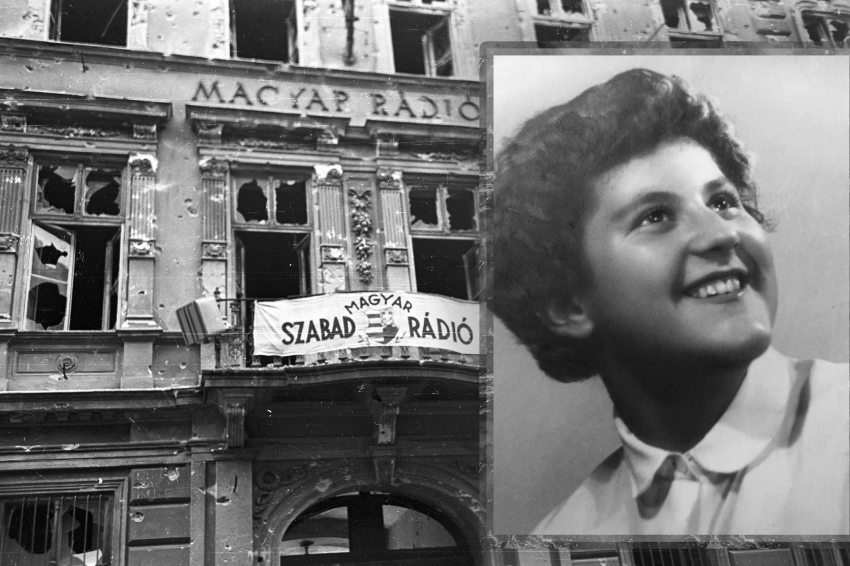
The meeting was arranged at Edina Koszmovszky's home in Pest. When she opens the door, I immediately recognise her face from the unclear black and white photo taken of her decades ago. Her smile has not changed through time, her eyes sparkle as they did when she was eighteen. As I prepare for the interview, I notice how beautifully the sun is shining. "Just like October 23, 1956," she says with a smile as she sits down at the table beside me.
-Do you still have the red coat?
- No. That was the first thing I sent home to a colonel’s poor wife when I fled from Hungary.
- That day when you got off the tram at Astoria and some young engineering students handed you the 14 points you were only 18. Did you sense in the air that something big was about to happen in Budapest?
- I wasn't aware of it, I just felt I had to be there. At work, we listened to the news all day, we knew about the solidarity demonstration at the Bem statue, but at that time no one thought there would be bloodshed.
- How did you get to the front line?
- My impudent son always says that I pushed myself (laughs). The truth is, it was fate. When I arrived at the National Museum, they were already reciting the National Anthem, and then suddenly someone shouted, "Let's free the Radio!" Then I, along with the crowd, headed for Bródy Sándor Street.
When we got there, someone asked who had the 14 points at hand, and I offered my copy. That's how I ended up on a news van in front of the building with a microphone in my hand, and that's when I first read out the demands.
We knew that they were not broadcasting the events because people had put radios in the windows and we could hear only music. Then someone shouted "Delegation to the Radio!" I was dragged off the roof of the car, and then nine randomly selected boys from the crowd were placed next to me, and our delegation of ten was formed. It was all so spontaneous and uplifting: we were breathing together, we wanted the same things, we were one nation. We went into the building, our names were taken down and we were escorted up to the President, Valeria Benke, who stiffly refused to broadcast the points. After a while, the crowd waiting in the street became anxious for us and demanded that we appear on the balcony of the Radio. We were then escorted out onto the balcony, where I was given a microphone and allowed to read out our demands for the second time. This was also not broadcast on the radio, instead, the speech of Ernő Gerő was broadcast.
- ”We condemn those who seek to spread the blight of chauvinism among our youth and use the democratic freedom which our state grants to the working people for nationalist demonstrations."
-It was a shameful speech! It made us look like provocateurs and rabble, but that was the spark from which the revolution broke out.
After reading the points, we were pulled back from the balcony, split into two groups, and taken up to the top floor study rooms. The person from the AVO (State Protection Authority) was in the other room so I could call my father.
- How did he react when you told him what had happened?
- My father was a patriotic man, a political prisoner in Hungary for nine years. When I told him what happened, he just said, "Edina, you lived up to your father." That made me feel very good, especially because he knew what I could expect.
- Not much good was in store for you. Word quickly got out about the girl in the red coat...
- My father was working for the ambassador of India at the time, who sent a delegation to Vienna after the revolution. My mother and brother had been escorted to the countryside earlier to be safe, and I stayed in the city with my father. I had always loved the water, and on the morning of 13 November, I was walking along the banks of the Danube. When I got home, my father was waiting for me by the stairs. I could see in his eyes that something was wrong. When I came up to him, he said, "Edina, the AVO (State Protection Authority) was here, looking for you by name. Turn around and head west." And then I turned around and headed west with the delegation. They put me in the ambassador's wife's car, next to their own daughter, and that's how I got across the border.
- It must have been painful to leave behind everything you knew and loved...
- When we crossed the border, I got out of the car and leaned over the barrier, crying. I said goodbye to my country and my family for the rest of my life.
I didn't believe that Hungary would be free after the revolution. Then I walked back to the car, got in, and in the evening I was already in Vienna, admiring the glittering shop windows.
- Where did you go to sleep that day?
- Walking down the street, I met a lady who knew a Belgian Red Cross and arranged for me to stay with them in a hotel.
- How did you end up in France?
- I went to Paris out of idealism, because I was in love with the Declaration of the Rights of Man and of the Citizen proclaimed in 1789, the 17 points still hang on my wall. There I met a man from Marseille who later married me and we had four children. I never really got used to the port city, which is why I was so happy when my husband was offered a job in Nice, where I still live today.
- You were not allowed to come home for fourteen years. Fortunately, my generation does not know this kind of torturous homesickness. Do you remember how it felt to cross the Hungarian border again?
- It was indescribable to meet my family again after so long and to bring my sons home to Hungary.
Besides, it was not only homesickness that was distressing, but also longing for my mother, because when a woman gets married and has children, she misses her mother the most.
- How do you see the country now, the country that you helped make free?
- Hungary has changed a lot. The 14 points were essentially realised at the time of the regime change, in 1989. The victory of the fight for freedom was completed then. Unfortunately, not all young people feel what a wonderful thing freedom is. Perhaps it is because we always appreciate less what life offers us on a plate, and only when we have to fight for something do we realise its importance. That is why I go home every October to tell young people in schools and universities about what happened in '56 and how great freedom is.
